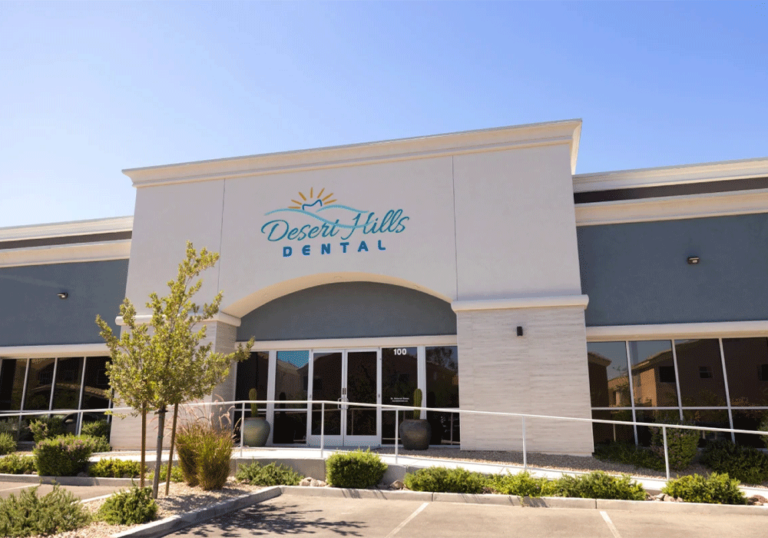Why Are My Teeth Stained?
To many people, a morning coffee or afternoon glass of wine is a ritual that cannot be disturbed or broken, but as there are many joys that come with those drinks there are still many enamel-straining prices. There are 3 different types of staining that can happen to your teeth and different causes. Learn more below. If you are unhappy with the color of your smile, Desert Hills Dental in Las Vegas, NV can help!
Types of Stains:
Tooth discoloration can be caused by surface stains, material changes in your teeth, or a mix of the two. Tooth discoloration can be divided into three types, according to dentists:
- Extrinsic Teeth Stains: These stains are a type of discoloration that affects the outer layer of your teeth. Extrinsic stains are not as permanent as the other types, these stains will not respond to simply brushing your teeth. If there are cracks on the teeth they can become deep-set and begin to be harder to remove.
- Intrinsic Teeth Stains: This type of stain will be found on the inner layer of your teeth or the dentin. Though dentin is beneath the tooth enamel, the darkened dentin can cause the whole tooth to appear discolored.
- Age-Related Teeth Stains: Age-related teeth stains are a combination of both extrinsic and intrinsic discoloration. The core tissue of your teeth, the dentin, will naturally yellow over time causing your teeth to become discolored. Another factor that may cause your teeth to show discoloration is that the enamel of your teeth will become thinner allowing the dentin to show through.
Causes of Enamel Stains
There can be many causes when it comes to teeth stains. Certain drinks and foods can cause there to be stains on your teeth, but there can be a biological factor as well. Many times there can be ways to prevent these stains from appearing on your teeth and many that you can not control. This list can help you determine what the cause was behind the stains on your teeth.
- Food & Drink: Coffee, dark sodas, red wine, and some fruits and vegetables can be so acidic that they cause staining.
- Tobacco: Cigarettes and chewing tobacco can contribute to discoloration
- Oral Care: Tooth discoloration can be caused by poor dental hygiene, such as insufficient brushing or flossing.
- Trauma or Disease: Discolored teeth can result from any trauma, illness, or disease that impairs enamel formation in children, whether in the womb or while teeth are developing (under the age of 8). Adult teeth can sometimes become stained as a result of trauma. Discolored teeth can be caused by a number of disorders and therapies, chemotherapy and radiation, for example, cause tooth discoloration.
- Medical Treatments: There are times when some medical treatments can contribute to your teeth staining as well as some medications.
Ways to Help Clear Stains
There are a few remedies that can help lessen the impact of these causes. With help of some products, the coloration of your stains can become less apparent, but will not fully remove those stains.
- Keeping a consistent healthy oral routine – brushing twice a day and daily flossing
- Twice-yearly visit to your dentist
- Limitation of teeth-staining beverages
- At home remedies – brushing with baking soda products
- Professional teeth whitening
If you are interested in getting your teeth back to pearly white, contact Desert Hills Dental in Las Vegas, NV today for a professional teeth whitening session!
